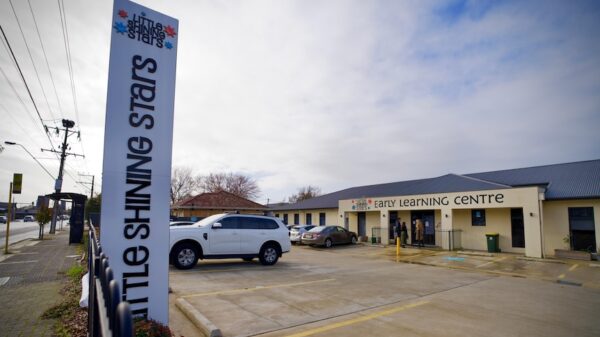UPDATE: Urgent discussions are underway in Australia as tensions surrounding antisemitism escalate following the recent violence in Israel. The government faces mounting pressure to act on the Segal Plan to Combat Antisemitism in response to a surge in hate crimes, linked to the horrific events of October 7, 2023, when Hamas terrorists brutally attacked innocent civilians.
Recent reports highlight that Melbourne has been labeled the “Antisemitic Capital of the West,” prompting immediate calls for government intervention. The plan’s advocates argue that the rise in antisemitic sentiments is a direct reaction to the violence inflicted by Hamas, which has stirred deep societal divisions.
Critics have pointed to the Albanese government’s controversial decision to admit 3,000 Gazans, suggesting that this action has compromised national security. Officials argue that these individuals could have had close ties to Hamas, raising concerns about their potential influence within Australian society. The Albanese administration faces scrutiny for taking a step that no Arab government has dared to undertake.
In a statement, critics highlighted that Jordan’s King Abdullah II has consistently warned of the risks associated with admitting refugees from conflict zones, saying, “No refugees in Jordan, no refugees in Egypt.” This historical context adds weight to the argument that the Albanese government is acting recklessly.
The urgency of the situation has been amplified by recent protests, including a violent demonstration at Sydney’s Opera House on October 9, 2023, where chants of “Gas the Jews!” were reported. Authorities have been criticized for failing to enforce the law during these protests, leading to calls for accountability.
The Executive Council of Australian Jewry has taken legal action against Islamic preacher Wissam Haddad for inciting hate, marking a significant step in seeking justice for antisemitic rhetoric that has proliferated in recent months. This move underscores the urgency of maintaining public safety and upholding the law.
As the 2025 election draws near, political analysts warn that the Labor party’s left faction may prioritize alliances that could further exacerbate tensions. Critics are urging voters to consider parties that prioritize national security and social cohesion, calling for a shift in preferences to smaller parties like One Nation that focus on accountability.
The historical context of antisemitism in Australia reveals a troubling legacy. While early Jewish settlers contributed significantly to the fabric of Australian society, antisemitism began to surface in the 19th century, largely fueled by divisive media narratives. The post-war era saw a turning point with leaders like Robert Menzies working to integrate Jewish Australians into public life.
However, recent developments indicate a retreat from this progress, with reports of increased security measures outside synagogues and community centers becoming alarmingly commonplace. The growing visibility of antisemitic incidents, including protests and public displays of hate, has raised concerns among Jewish communities across the nation.
As the debate intensifies, politicians are being urged to take decisive action to address the rising tide of antisemitism. Advocates stress that accountability for elected officials is crucial, with calls for reforms that empower voters to demand more from their leaders.
In this critical moment, the Australian public is watching closely. What happens next will not only shape the future of antisemitism in Australia but also define the government’s commitment to protecting its citizens from hate and division. As the situation develops, all eyes will be on how local and federal authorities respond to these urgent calls for action.



























































